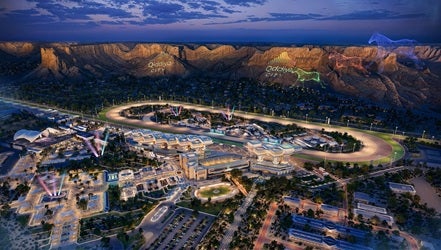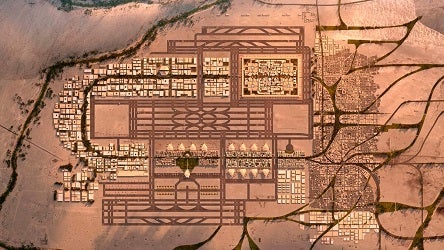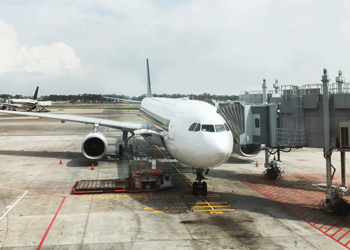Alba positions for the future
6 November 2024

Aluminium Bahrain (Alba) is a key player in the Bahraini economy. It began aluminium smelting in Bahrain more than 50 years ago, in 1971. Today, it is the largest company listed on the Bahrain Bourse by market cap, and its smelter in Asker is the world’s largest single-site aluminium smelter outside of China.
Its capacity has been growing since the opening of Line 6 in 2019. In 2023, it set a new record with 1,620,665 metric tonnes of production, up 1.3% from 2022.
Despite this success, it is far from business as usual for Alba this year, as it seeks to position itself as an industrial leader for the next 50 years. On 24 October, it informed the Bahrain Bourse, where it is listed, that it had appointed advisers to guide its due diligence process as it explores a potential business combination with Saudi Arabian Mining Company (Maaden).
“The logic is that Maaden will contribute its aluminium smelter assets, which are held within Maaden Aluminium Company, their alumina refinery and bauxite mining, in return for the issuance of shares in Alba,” said Alba chairman Khalid Al-Rumaihi while speaking on stage at the Gateway Gulf investor forum in Bahrain on 4 November.
The deal gives Alba vertical integration with Maaden’s bauxite mines and alumina refining and local access to the growing Saudi market. For Maaden, the deal gives it greater market reach using Alba’s established sales network.
The appointed advisers for the transaction are Moelis & Company as financial adviser, Hatch as technical adviser, McKinsey & Company as commercial adviser, PricewaterhouseCoopers as financial and tax adviser, Teneo as public relations adviser and Freshfields Bruckhaus Deringer as legal adviser.
The announcement to merge with Maaden followed the signing of an agreement in September by Saudi Basic Industries Corporation (Sabic) with Maaden to sell its 20.62% shareholding in Alba. Sabic expects to make sales proceeds of $965m-$1.06bn from the transaction, the completion of which is subject to regulatory approvals from relevant authorities in Saudi Arabia and Bahrain.
Change of plan
Alba has also changed its expansion plans. Instead of building a new Line 7, the aluminium producer plans to install new production facilities to replace the existing lines 1, 2 and 3.
“Now the intention is to demolish or stop the old lines, which are efficient from 1971. They are more than 50 years old, and we will replace them with new lines. Technically, this is not a new Line 7 project anymore because we are going to close lines 1, 2 and 3,” Alba CEO Ali Al-Baqali told MEED on the sidelines of Gateway Gulf.
The feasibility study for the project has already started and is being executed by US firm Bechtel. In 2022, Bechtel was appointed to conduct a feasibility study for Line 7. The firm was also the contractor for Line 6, which was commissioned in 2019.
Replacing lines 1, 2 and 3 will also allow Alba to increase capacity by installing more efficient, modern production plants while at the same time utilising existing assets at the Alba site in Bahrain.
“There is no need for power because we are going to utilise the same power,” Al-Baqali said. “We also do not need a new cast house.”
The plans to replace lines 1, 2 and 3 are separate from plans to enhance the capacity of lines 4 and 5. In September this year, the Alba board approved an estimated $30m project known as Lines 4-5 Creep-up, which, upon completion, is expected to increase Alba’s metals production capacity by 8,000 metric tonnes a year.
Further announcements
Alba also made two other announcements at Gateway Gulf. Alba and Japan’s Daiki Aluminium Industry Company will form a joint venture known as Alba-Daiki Sustainable Solutions (ADSS) to develop an aluminium dross processing facility in Bahrain. Alba will hold a 70% stake in the joint venture, while Daiki will own the remaining 30%. Both partners intend for the aluminium dross plant to commence operations by September 2026.
Alba and Bahrain-based Array Innovation also announced plans to accelerate Alba’s Industry 4.0 digitalisation journey with advanced artificial intelligence (AI), data analytics and automation solutions to optimise Alba’s operations and boost efficiencies.
Looking to the future, Bahrain is also seeking to move up the value chain and further develop its downstream aluminium production capabilities.
“Alba existed in a certain time. We were looking at electricity being cheaper in this part of the world. You could import alumina, apply electricity to the production process and export. We live in a new reality now where that electricity competitiveness is no longer present,” said Al-Rumaihi.
“What we have to do is think about what the industries will be like in the future. Every country in the Gulf is thinking about this. How can we introduce manufacturing in my economy? How can we widen the manufacturing base to move from being a consumer to a producer?”
Steps have been taken to achieve this. For example, Spain’s Aleastur, in partnership with the kingdom’s sovereign wealth fund Bahrain Mumtalakat Holding Company, has established an aluminium grain refining operation in Bahrain.
“We want to do more. We’re still very low on the value chain, and aluminium is a metal of the future,” said Al-Rumaihi.
Exclusive from Meed
-
 AI signals a new efficiency era for oil and gas
AI signals a new efficiency era for oil and gas11 February 2026
-
 February deadline for Qiddiya racecourse bids
February deadline for Qiddiya racecourse bids11 February 2026
-
 King Salman airport signs mixed-use project agreements
King Salman airport signs mixed-use project agreements11 February 2026
-
 Saudi Arabia signs $5.3bn Syria reconstruction deal
Saudi Arabia signs $5.3bn Syria reconstruction deal11 February 2026
-
 Indian firm wins contract for UAE battery project
Indian firm wins contract for UAE battery project11 February 2026
All of this is only 1% of what MEED.com has to offer
Subscribe now and unlock all the 153,671 articles on MEED.com
- All the latest news, data, and market intelligence across MENA at your fingerprints
- First-hand updates and inside information on projects, clients and competitors that matter to you
- 20 years' archive of information, data, and news for you to access at your convenience
- Strategize to succeed and minimise risks with timely analysis of current and future market trends

Related Articles
-
 AI signals a new efficiency era for oil and gas
AI signals a new efficiency era for oil and gas11 February 2026
Artificial intelligence (AI) is poised to deliver one of the biggest leaps in operational efficiency the oil and gas industry has seen in decades – but not in the ways most expect. In a sector where progress is typically measured in micro-optimisations, harsh terrain, sprawling pipelines and escalating security risks make even small improvements valuable. Now, machine learning, edge computing, the industrial internet of things (IIoT), cloud and big data are converging into something far more disruptive.
 A major global oil and gas player recently tested an intriguing Proof of Concept with Nokia, leveraging existing fiber buried along pipelines for real-time “fiber sensing.” What they uncovered could reshape how infrastructure threats are detected. Optical fiber, it turns out, is sensitive enough to register disturbances caused by everything from rainfall to trucks, earthquakes and human intrusion. When paired with long-range anomaly detection, the implications for pipeline safety stretch far beyond routine monitoring. Just how precise – and how operational teams might act on these signals – remains part of the unfolding story.
A major global oil and gas player recently tested an intriguing Proof of Concept with Nokia, leveraging existing fiber buried along pipelines for real-time “fiber sensing.” What they uncovered could reshape how infrastructure threats are detected. Optical fiber, it turns out, is sensitive enough to register disturbances caused by everything from rainfall to trucks, earthquakes and human intrusion. When paired with long-range anomaly detection, the implications for pipeline safety stretch far beyond routine monitoring. Just how precise – and how operational teams might act on these signals – remains part of the unfolding story.Telemetry data, already flowing in vast quantities between remote operations and headquarters, is fuelling even more ambitious AI use cases. Predictive bandwidth scaling, digital twinning, precision timing optimisation and automated network reconfiguration are all being explored to strengthen performance and resiliency. But with high innovation comes high stakes: one model glitch could invalidate results, burn time and inflate costs. How companies balance the promise of AI with the risks of over-automation is a tension worth watching.
Then there’s the looming security horizon. Cybercrime already threatens data-heavy operations, but oil and gas firms are increasingly preparing for something even more destabilising – the quantum threat. While cryptographically relevant quantum computers aren’t here yet, adversaries are already stockpiling encrypted data using Harvest Now Decrypt Later tactics. Multi-layer encryption defences like OTNsec, ANYsec and MACsec offer new protective possibilities, but questions remain around scalability, adoption barriers and readiness timelines.
To unlock AI’s full potential, oil and gas networks must evolve to deliver extreme speed, low latency, massive compute support and future-proof security. Nokia has built solutions across all these fronts, including private 4G/5G for remote industrial environments. But what specific breakthroughs lie ahead – and how soon they could impact global operations – is where the real curiosity begins.
The summary hints at the disruption. The details? That’s inside the full article here.
Published in partnership with
 https://image.digitalinsightresearch.in/uploads/NewsArticle/15627990/main.gif
https://image.digitalinsightresearch.in/uploads/NewsArticle/15627990/main.gif -
 February deadline for Qiddiya racecourse bids
February deadline for Qiddiya racecourse bids11 February 2026

Register for MEED’s 14-day trial access
Saudi gigaproject developer Qiddiya Investment Company (QIC) has allowed bidders until 15 February to submit bids for a tender covering the construction of a racecourse at the entertainment city of Qiddiya, on the outskirts of Riyadh.
MEED understands that the tender was issued in December. The previous deadline was 26 January.
The racecourse venue will cover 1.3 million square metres (sq m) and accommodate 70,000 spectators.
QIC formally announced the project on 10 February.
According to a statement published on its website, “The venue will include the region’s first straight-mile turf course, alongside a 2.2 kilometre (km) main turf track and a 2.4km inner dirt track.
“A 21,000-seat grandstand will anchor the venue, with the ability to expand capacity to up to 70,000 guests through event overlays during major race days,” the statement added.
A centrepiece of the venue will be a 110-metre central parade ring, located in the middle of the racecourse.
The project also includes an Equine Hospital that will provide advanced veterinary services, including diagnostics, surgery, rehabilitation and emergency care for horses.
The Qiddiya City horse racing venue is one of several major projects within the greater Qiddiya development. Other projects include an e-games arena, the Prince Mohammed Bin Salman Stadium, a motorsports track, a performing arts centre, the Dragon Ball and Six Flags theme parks, and Aquarabia.
The project is a key part of Riyadh’s strategy to boost leisure tourism in the kingdom. According to GlobalData, leisure tourism in Saudi Arabia has experienced significant growth in recent years.
https://image.digitalinsightresearch.in/uploads/NewsArticle/15626248/main.jpg -
 King Salman airport signs mixed-use project agreements
King Salman airport signs mixed-use project agreements11 February 2026
Register for MEED’s 14-day trial access
King Salman International Airport Development Company (KSIADC) has signed multiple memorandums of understanding with local firms to develop several mixed-use projects within King Salman International airport (KSIA) in Riyadh.
The agreements were signed on the sidelines of the Private Sector Forum 2026 in Riyadh.
The agreements involved major investment and development firms, including Sumou Holding, Mohammed Al-Habib Investment, Kinan, Ajdan, Retal, Urjuan and Osus.
The developments will comprise residential, commercial, retail, hospitality, entertainment and other related projects.
These developments will be located within the airport’s master development area, 12 square kilometres (sq km) of which are allocated for real estate development.
According to a statement published by the Saudi Press Agency, “KSIADC’s development scope also includes integrated economic and logistics zones covering approximately 3 million square metres, aligning real-estate development with economic activity and supporting services."
Project scale
The project covers an area of about 57 sq km, allowing for six parallel runways, and will include the existing terminals at King Khalid International airport.
The airport aims to accommodate up to 100 million passengers by 2030. The cargo processing goal is to reach 2 million tonnes a year by 2030.
Saudi Arabia plans to invest significantly in its aviation sector. Riyadh’s Saudi Aviation Strategy, announced by the General Authority of Civil Aviation, aims to triple Saudi Arabia’s annual passenger traffic to 330 million travellers by 2030.
It also aims to increase air cargo traffic to 4.5 million tonnes and raise the country’s total air connections to more than 250 destinations.
 READ THE FEBRUARY 2026 MEED BUSINESS REVIEW – click here to view PDF
READ THE FEBRUARY 2026 MEED BUSINESS REVIEW – click here to view PDFSpending on oil and gas production surges; Doha’s efforts support extraordinary growth in 2026; Water sector regains momentum in 2025.
Distributed to senior decision-makers in the region and around the world, the February 2026 edition of MEED Business Review includes:
> AGENDA: Mena upstream spending set to soar> INDUSTRY REPORT: MEED's GCC water developer ranking> INDUSTRY REPORT: Pipeline boom lifts Mena water awards> MARKET FOCUS: Qatar’s strategy falls into place> CURRENT AFFAIRS: Iran protests elevate regional uncertainty> CONTRACT AWARDS: Contract awards decline in 2025> LEADERSHIP: Tomorrow’s communities must heal us, not just house us> INTERVIEW: AtkinsRealis on building faster> LEADERSHIP: Energy security starts with rethinking wasteTo see previous issues of MEED Business Review, please click herehttps://image.digitalinsightresearch.in/uploads/NewsArticle/15626197/main.jpg -
 Saudi Arabia signs $5.3bn Syria reconstruction deal
Saudi Arabia signs $5.3bn Syria reconstruction deal11 February 2026
Register for MEED’s 14-day trial access
Saudi Arabia has signed a package of strategic agreements with Syria valued at $5.3bn (SR20bn) to progress Damascus’s reconstruction efforts.
The agreements span aviation, telecommunications, energy, water, industry, real estate and development finance, and involve both public and private Saudi entities.
The most significant deal will see Saudi Arabia and Syria jointly support the creation of a new low-cost carrier based in Syria – Flynas Syria – in a 51-49 joint venture between the Syrian General Authority of Civil Aviation and Saudi low-cost carrier Flynas.
The carrier is scheduled to begin operations in the fourth quarter of 2026, with routes planned across the Middle East, Africa and Europe.
Other aviation infrastructure also features prominently, with Saudi Arabia also announcing the launch of the ‘Elaf Fund’ and committing $2bn (SR7.5bn) to the phased development and modernisation of two international airports in Aleppo.
The programme will include runway upgrades, terminal expansion and logistics facilities, transforming the northern city into a regional transport and cargo hub.
Some of the deals confirmed previously announced commitments, including a $1bn telecommunications infrastructure investment agreement signed by Saudi Telecom Company (STC) under the ‘SilkLink’ project.
This initiative will see STC construct a 4,500-kilometre fibre-optic network across Syria, develop data centres and establish international submarine cable landing stations.
Saudi Arabia previously committed to investing $1bn into Syria’s telecommunications infrastructure in July 2025, as part of $6.4bn in commitments across 47 agreements announced at the Syrian-Saudi Investment Forum in Damascus.
The kingdom’s Water Transmission Company and Acwa also signed an agreement to develop a large-scale seawater desalination project with a capacity of 1.2 million cubic metres a day.
Riyadh Cables Group will meanwhile help modernise the production capabilities of the Syrian Modern Cables Company, and three separate agreements were signed for large residential and commercial real estate developments.
With the lifting of US sanctions in late 2025, the pathway for Gulf countries to proceed with such commitments and for Syria to re-enter regional markets has opened.
 READ THE FEBRUARY 2026 MEED BUSINESS REVIEW – click here to view PDF
READ THE FEBRUARY 2026 MEED BUSINESS REVIEW – click here to view PDFSpending on oil and gas production surges; Doha’s efforts support extraordinary growth in 2026; Water sector regains momentum in 2025.
Distributed to senior decision-makers in the region and around the world, the February 2026 edition of MEED Business Review includes:
> AGENDA: Mena upstream spending set to soar> INDUSTRY REPORT: MEED's GCC water developer ranking> INDUSTRY REPORT: Pipeline boom lifts Mena water awards> MARKET FOCUS: Qatar’s strategy falls into place> CURRENT AFFAIRS: Iran protests elevate regional uncertainty> CONTRACT AWARDS: Contract awards decline in 2025> LEADERSHIP: Tomorrow’s communities must heal us, not just house us> INTERVIEW: AtkinsRealis on building faster> LEADERSHIP: Energy security starts with rethinking wasteTo see previous issues of MEED Business Review, please click herehttps://image.digitalinsightresearch.in/uploads/NewsArticle/15625394/main.gif -
 Indian firm wins contract for UAE battery project
Indian firm wins contract for UAE battery project11 February 2026
Register for MEED’s 14-day trial access
India’s KPI Green Energy has won a contract to deliver a solar and battery energy storage system (bess) in the UAE.
The scope includes the supply, installation and commissioning of a 33kWp solar power system integrated with a 573kWh battery energy storage system to power a containerised data centre.
The award was confirmed through a purchase order issued by FVE Lifecare, a UAE private trading company. The firm is understood to be procuring the solar-bess system for an internal or third-party data centre.
KPI Green Energy said the project will be delivered through its subsidiary Sun Drops Energia.
The package also covers a 120kVA modular UPS system, electrical panels, cabling and full system integration.
The contract is small-scale but reflects broader momentum for battery storage in the UAE across both private facilities and the national grid.
Construction is expected to begin this month on the UAE’s largest grid-side energy storage project to be awarded through open tender.
Called Bess 1, the project closely follows the model of Abu Dhabi’s independent power project (IPP) programme, in which developers enter into a long-term energy storage agreement (ESA) with Ewec as the sole procurer.
Etihad Water & Electricity (EtihadWE) and South Korea’s Kepco won the award to develop the project in October.
Emirates Utilities Development Company, a subsidiary of EtihadWE, will develop and operate the project in partnership with Kepco.
Chinese firm Dongfang International is the engineering, procurement and construction contractor.
 READ THE FEBRUARY 2026 MEED BUSINESS REVIEW – click here to view PDF
READ THE FEBRUARY 2026 MEED BUSINESS REVIEW – click here to view PDFSpending on oil and gas production surges; Doha’s efforts support extraordinary growth in 2026; Water sector regains momentum in 2025.
Distributed to senior decision-makers in the region and around the world, the February 2026 edition of MEED Business Review includes:
> AGENDA: Mena upstream spending set to soar> INDUSTRY REPORT: MEED's GCC water developer ranking> INDUSTRY REPORT: Pipeline boom lifts Mena water awards> MARKET FOCUS: Qatar’s strategy falls into place> CURRENT AFFAIRS: Iran protests elevate regional uncertainty> CONTRACT AWARDS: Contract awards decline in 2025> LEADERSHIP: Tomorrow’s communities must heal us, not just house us> INTERVIEW: AtkinsRealis on building faster> LEADERSHIP: Energy security starts with rethinking wasteTo see previous issues of MEED Business Review, please click herehttps://image.digitalinsightresearch.in/uploads/NewsArticle/15623323/main.jpg


